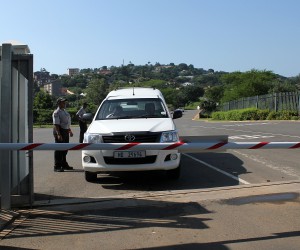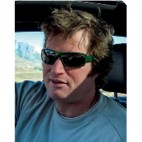The number of crimes committed against South African business is constantly climbing – and a substantial portion of this problem can be attributed to poor standards in the security guarding segment of South Africa’s R50-billion private security industry.
Bernardo Luis, operations director at Guarding SA, has warned that security companies as well as the companies that employ them, need to get their house in order if there is to be any chance of stemming the 380% rise in business crime that has occurred since 2004/5 (Source: Institute of Security Studies).
He said that problems ranging from guards falling asleep on the job to those working in cahoots with organised syndicates and turning a blind eye to goods that are brazenly transported out of companies’ warehouses, contributed to the 7.5% increase in business crime recorded during the year ended April 2012 (statistics released by the South African Police Service in September last year).
“It is extremely worrying if you look at how much crime is committed because people put too much trust in guards. Guarding is an extremely high-risk environment. Guards are constantly being bought. Threats come from both within and outside organisations. A guard will be constantly approached and enticed by syndicates, dishonest employees operating within a company and even opportunists who want to get into a business.”
He said an influx of fly-by-night companies into the guarding sector, which turns over R18 billion and is the largest part of the industry (Private Security Regulatory Authority), was severely compromising the delivery of guarding services. In order to undercut rates charged by reputable companies, these companies do not employ suitable security guards and often pay below the minimum wage stipulated for the industry, increasing the chance of employees being tempted to commit crime.
As a result, he said, it was time to get back to basics. He pointed out that all companies as well as individual employees needed to be registered with PSRIA, as stipulated by the Private Security Regulation Act (2001) and subsequent amendments. The PSRIA website provides an online and extremely easy way to check credentials.
It is a legal requirement for companies that employ outsourced security guards to ensure they are registered with PSIRA; even if companies employ in-house guards, both the company and the guards need to be registered with the organisation.
Luis advised that companies hiring guarding companies should obtain references from other clients as well as investigate their operational and managerial systems. For starters, he said, companies should deal with guarding companies that both pre-screen and constantly monitor their staff.
Justicia Investigations’ polygraph expert, Frans van Biljon, said that just recently a security company had approached the company for assistance with a theft problem. “Polygraphs were used and it was established that a security guard who was holding a position of trust had been recently released from prison for armed robbery! This security officer was operating with a valid PSRIA certificate, which is believed to be someone else’s. Had pre employment polygraph tests been done, this problem would have been avoided."
He said one of the underlying difficulties was that, with a turnover of R50 billion, the South African private security industry was not only one of the largest but also one of the fastest growing security employers in the world. Again, according to PSRIA, the number of private security officers and private security companies in South Africa has increased by 111.30% and 66.7% respectively.
The size and the ease with which new entrants could be trained and absorbed into the sector often results in extremely fleeting employee loyalty, with guards simply moving from company to company should they be dismissed for misdemeanours. “That’s why, for us, the crux is the screening process and maintaining that. Every single person who applies for a job at Guarding SA is polygraphed prior to being employed and also polygraphed periodically. We also infiltrate our own guards using undercover agents and offer a whistle-blowing line. If we have two or three guys on site, you can rest assured that one is an undercover agent,” he said.






